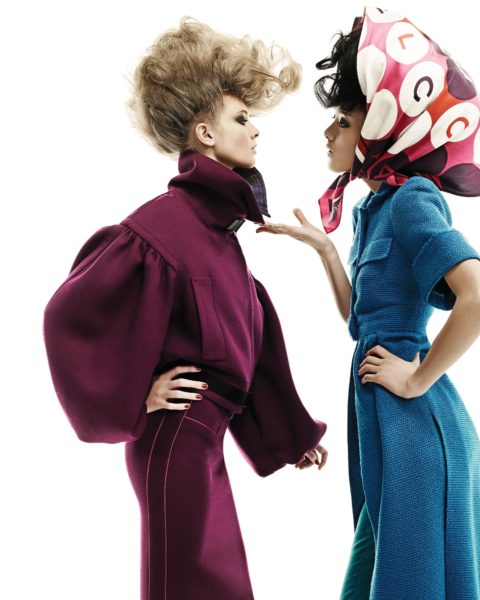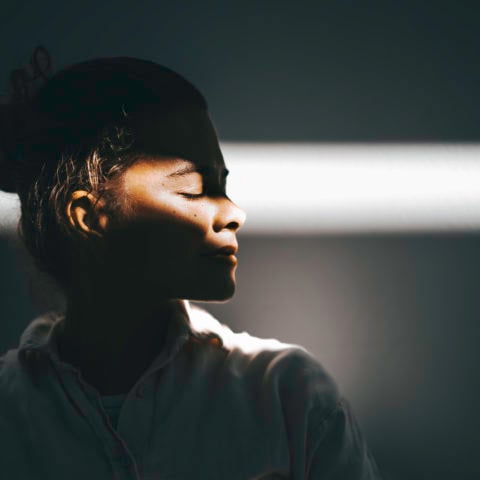Why Are Girls so Mean to Each Other? One Former Mean Girl Offers Insight and a Solution
After that, I was kind of a bitch. Not all the time, and not with everyone, but I eye-rolled my way through high school and most of my 20s, taking on the offensive-as-defensive pose of a mean girl.
“There are two kinds of people in the world,” says anyone who thinks they’ve made an incisive, singular observation about humanity at large. Here’s mine: There are people who stay fundamentally the same, and there are people who change.
I’m pretty sure about this because I’m tight with people I’ve known from the get-go whose emails from yesterday could have been written in 2007. Then there are other people who show up on Facebook with new names, faces or identities that render them unrecognizable to whoever sat beside them in homeroom.
I am, as Joan Didion advised, on “nodding terms” with who I used to be, but I’m a changer. I don’t think one way is better than the other, but, for me, transformation has always been my salvation.
A formal document is FedExed to girls on their 11th birthday, notifying them that adolescence will transmogrify their fun and discovery of life into something else. (This was before Tumblr made having “feelings” OK.) I was confused, sometimes crushed, when, as an excitable, curious kid, my interest in knowing everything and saying anything was suddenly considered weird or rude—and definitely bad. The heart beating under my overalls was as innocent as everyone else’s, but I could tell I was now being received as some kind of problem. Instead of internalizing the message to shut up, I pushed against it—hard. I also remember feeling tiny, in pain and aware that somehow I had to survive.
Instead of internalizing the message to shut up, I pushed against it—hard. I also remember feeling tiny, in pain and aware that somehow I had to survive.
After that, I was kind of a bitch. Not all the time, and not with everyone, but I eye-rolled my way through high school and most of my 20s, taking on the offensive-as-defensive pose of a mean girl. I wasn’t the Regina George edition that uses clique warfare. My targets were the try-hards who didn’t know enough to at least pretend to be cool. I felt contempt for their insecurity.
Everyone’s memory of their high-school self includes some historical revisionism, but I don’t think I actually meant to be “mean.” I wanted a laugh; I wanted to be right. I was bored, and restless, and I thought that that was how everyone rolled. What kills me now is that I wasn’t mature enough to act right. I wish I had understood, long before “We Should All Be Feminists” T-shirts became a thing, that what I was supposed to do and say, not do and not say, had been decided by a patriarchal culture and shouldn’t apply to me—or anyone.
I was still, of course, a beyond sensitive, highly emotional book nerd—which is, counterintuitively, optimal raw material for becoming a short-term bitch. Like other mean girls, I was mostly using the ice to protect my insides, which I knew were softer than peanut butter M&M’S in a hot car. I turned my empathy against itself: Being “nice” felt regressive and weak—what girls who wanted to please people aimed for. I wanted to be sleek, sharp and above it all—above the demand to be nice and above the people who went along with it.
I turned my empathy against itself: Being “nice” felt regressive and weak—what girls who wanted to please people aimed for.
A transformation based on fear and fuelled by adolescent anxiety can’t, and shouldn’t, last. While I was slow-rolling toward 30, a series of small, specific moments confirmed that I wasn’t living up to my responsibilities or in the direction of my values. I started to feel embarrassed whenever I was part of friend drama or gossip—or any other bitch behaviour that cooks in fear. One day, in my natural habitat of sitting around riffing on pop culture with a group of people where cynicism and criticism was the shared language, I realized that I had been using my best qualities—good taste, quick mind, social ease and capacity for delight—in the service of negativity. I walked out of the conversation, the room and the attitude.
I also knew by then that, like all women, I have access to enormous, inherent power and started to see how I’d been using it wrong— deconstructing without constructing anything better in its place. My power is a lot about how my wonder and genuine interest in people let me sort of see them and make them feel something: I send friends on blind dates with guys they end up marrying; I recommend a book that someone tells me changed their life; I introduce a colleague to their next mentor. Instead of casually dismantling their Facebook post or cocktail conversation, I wanted to flex my potential as a connector, wrangler, listener, adviser and fixer—as someone whose urgent bursting-openness could be warm and useful.
I started obsessing about my life and my choices and read a lot of bad self-help books, but my energy was still going off like amateur fireworks: I would spend a day starting things (recipes, laundry) but never finishing them; I made “someday” plans with no plan to do them; I was all ideas with no momentum. In my first session with my latest therapist, she said, “You’re fast” (and it wasn’t meant as a compliment). “Fast” was my default; it got me everywhere I wanted to go, but it was slowing me down. I started meditating a little, because that’s what everyone said to do, at first following online instructions for mindfulness meditation and then using an app called Calm. Realizing—after much silent, infuriating sitting—that the thrumming anxiety was not the same as intelligence or energy and the fastness was not “me” at all but a misapplication of me made me a forever meditator.
Realizing—after much silent, infuriating sitting—that the thrumming anxiety was not the same as intelligence or energy and the fastness was not “me” at all but a misapplication of me made me a forever meditator.
Meditation to address one’s anxiety should be a ubiquitous solution (or, at least, part of a solution). The benefits of mindfulness meditation will reveal themselves to anyone who breaks their phone and for two days is as blissfully unencumbered as Kim Kardashian wandering the empty streets of Cleveland. Even a temporary or symbolic break from active distraction will reveal what daily meditation makes possible.
When I started meditating twice a day for at least 20 minutes, I became in and “of” the moment, appreciative of it instead of using it to make something happen. Eventually I realized I was moving through more of my days with something close to intention—actually doing the things I needed to do instead of thinking endlessly and about everything all the time. One of my best friends described my new vibe as “peaceful”—an actual impossibility for me a few years ago.
Now, I don’t say anything I wouldn’t say to anyone’s face and rarely have an occasion to apologize. I don’t feel any guilt, embarrassment or mega urge to be right or critical or withholding. I’m cool just being.
I’m a changer, so I’ll surely transform again, but meditating ensures that whatever happens next is going to happen better.









